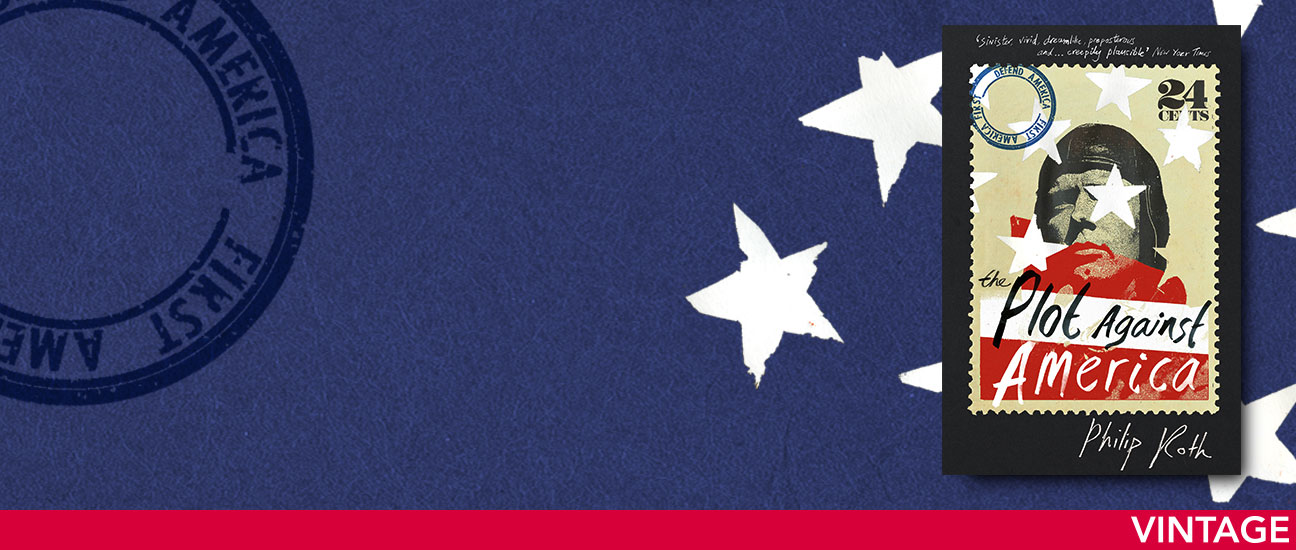- Home |
- Search Results |
- What Philip Roth’s The Plot Against America can teach us about the present

Philip Roth is widely seen as one of the greatest writers of post-war America – chronicling history, politics, questions of race and identity, of sexuality and relationships.
He also had uncanny foresight: his 2004 novel The Plot Against America opens with celebrity aviator, Charles A. Lindbergh, winning the 1940 US presidential election on the slogan of ‘America First’. Lindbergh’s presidency strikes fear into the heart of every Jewish household. Not only has Lindbergh blamed the Jews for pushing America towards war with Germany, he has negotiated an ‘understanding’ with the Nazis promising peace between the two nations.
Told from the perspective of a young boy growing up in the ‘ghetto’ of Newark, we see Jewish families torn apart by infighting and fear. As uncertainty about the future spreads, the question rings out: Who really is President Lindbergh? And to what end has he hijacked America?
1. Don’t trust the pollsters
‘The November election hadn’t even been close. Lindbergh got fifty-seven percent of the popular vote… Though on the morning after the election disbelief prevailed, especially among the pollsters, by the next everybody seemed to understand everything, and the radio commentators and the news columnists made it sound as if Roosevelt’s defeat had been preordained.’
2. Rhetoric trumps reason
‘In his low-key, taciturn, winning way, Lindbergh told the airfield crowds and the radio listeners who he was and what he’d done, and by the time he climbed back aboard his plane to take off for his next stop, he could have announced that…the First Lady would be inviting Adolf Hitler and his girlfriend to spend the Fourth of July weekend as vacation guests in the Lincoln bedroom of the White House and still have been cheered by his countrymen as democracy’s savior.’
3. Populism is superficial
‘Twentieth-century Americans, weary of confronting a new crisis in every decade, were starving for normalcy, and what Charles A. Lindbergh represented was normalcy raised to heroic proportions, a decent man with an honest face and an undistinguished voice who had resoundingly demonstrated to the entire planet the courage to take charge’
4. History isn’t harmless
‘As Lindbergh's election couldn't have made clearer to me, the unfolding of the unforeseen was everything. Turned wrong way round, the relentless unforeseen was what we schoolchildren studied as "History," harmless history, where everything unexpected in its own time is chronicled on the page as inevitable. The terror of the unforeseen is what the science of history hides, turning a disaster into an epic.’
5. There’s strength in standing firm
‘[My father] had quit his job not merely because he was fearful of what awaited us down the line should we agree like the others to be relocated, but because, for better or worse, when he was bullied by superior forces that he deemed corrupt it was his nature not to yield… There were two types of strong men: those like Uncle Monty and Abe Steinheim, remorseless about their making money, and those like my father, ruthlessly obedient to their idea of fair play.’
Sign up to the VINTAGE newsletter
By signing up, I confirm that I'm over 16. To find out what personal data we collect and how we use it, please visit our Privacy Policy.